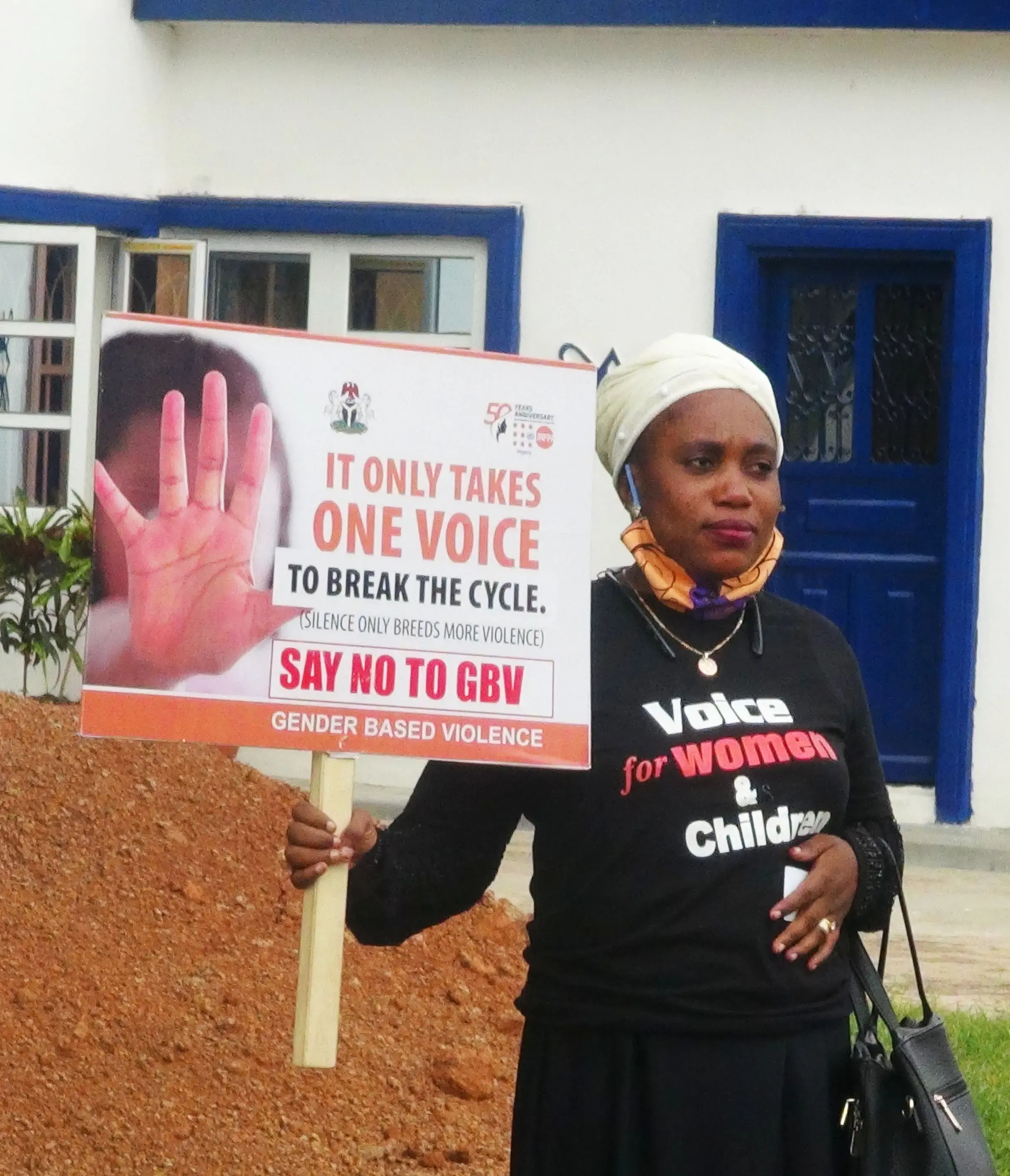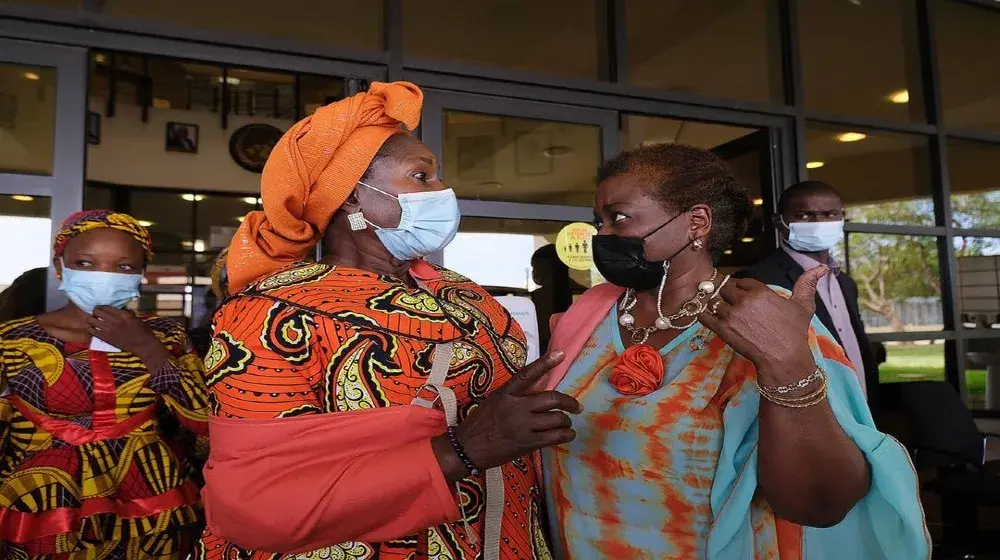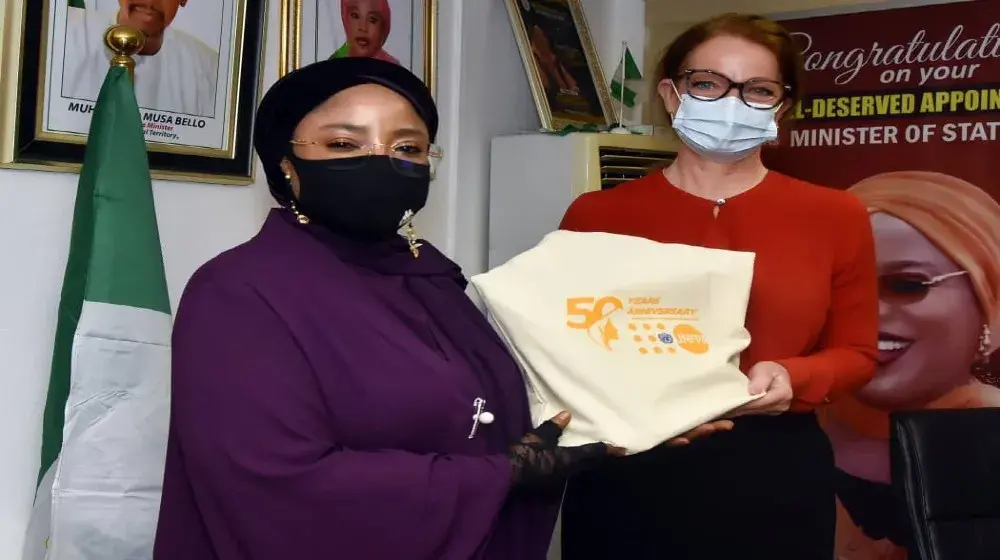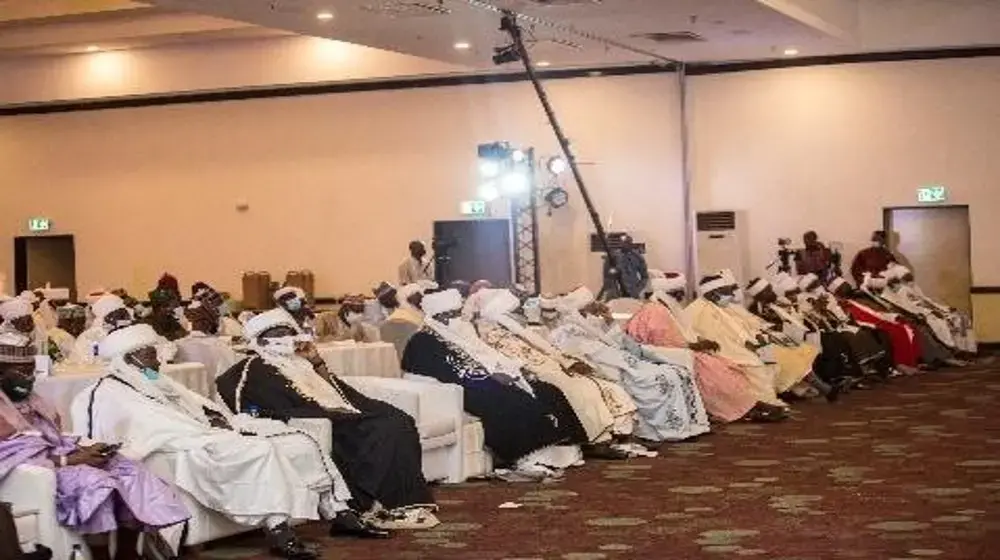At the beginning of the year, the GBV Sub Sector shared a jointly developed GBV response plan, which targeted 1.3million individuals for direct GBV response services in 2020, with 45% and 34% of the target population being girls and women respectively. Following the COVID-19 crisis, the sub-sector as part of the Protection Sector and Inter Sector Working Group (ISWG) engaged in the process of developing COVID-19 response strategies and contributed towards the HRP Addendum for COVID-19. While retaining its target, the GBV Sub Sector recognized the implications of the pandemic towards access to services and the need to adopt flexible modalities for service provision.
At the national level, Nigeria has recorded some positive developments during the reporting period. These include efforts by the Nigeria Governors Forum to declare a state of emergency on Gender-Based Violence; the inauguration of the Inter-Ministerial Gender-Based Violence Management Committee; the Senate approval of the Sexual Harassment Bill in furtherance of the legislative agenda to protect women’s rights and at regional level Statement by the ECOWAS Commission calling for urgent action to address GBV and protect the rights of children. In June, the National Human Rights Commission, the Nigeria Police, and the National Agency for the Prohibition of Trafficking in Persons (NAPTIP) signed an agreement of formally joining forces to combat GBV. These developments present opportunities to further the prevention and response to GBV in northeast Nigeria
This report highlights activities implemented by the GBV Sub-sector from January to June 2020, including key actions taken to adapt service provision in the context of the COVID-19 pandemic – an update of the May 2020 report. It provides a brief highlight of the trends of GBV incidents being observed, however, for more detailed analysis on trends please refer to the GBV Information Management Systems (GBVIMS) Mid-Year Report. Situation Update on GBV Trends: January to June, 20201 The GBV Information Management System (GBVIMS) enables service providers to safely collect, store and analyse data on reported incidents of GBV in the context of service delivery in Borno, Adamawa, and Yobe States. The COVID-19 pandemic has presented key challenges in displacement contexts with increased risks of domestic violence, intimate partner violence, and sexual exploitation and abuse, in addition to and resulting from loss of income and household stress; as well as barriers to help-seeking options for survivors.





